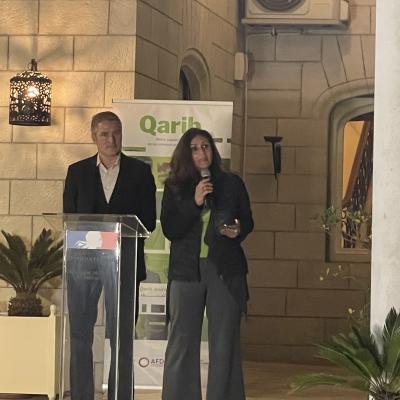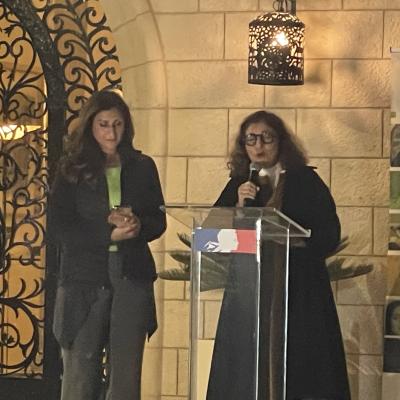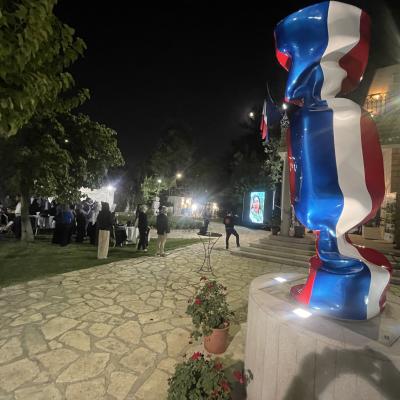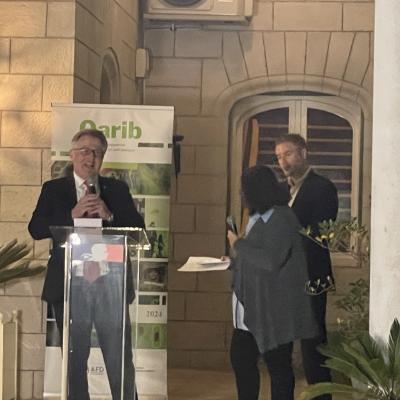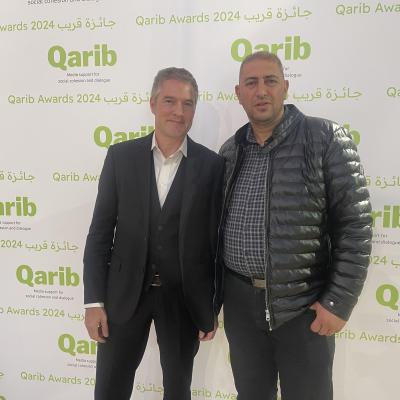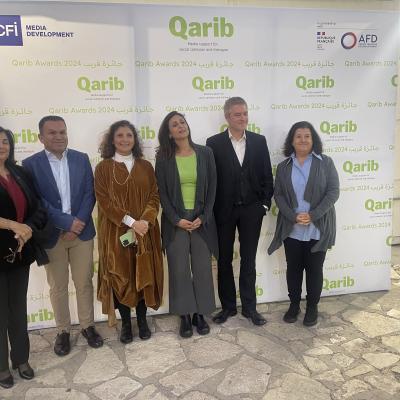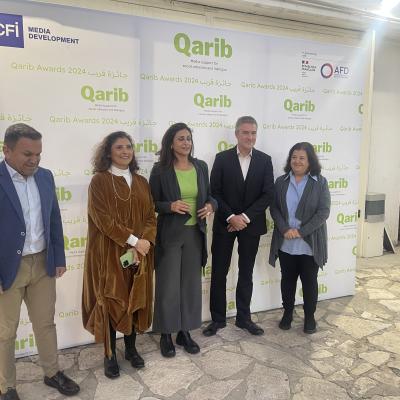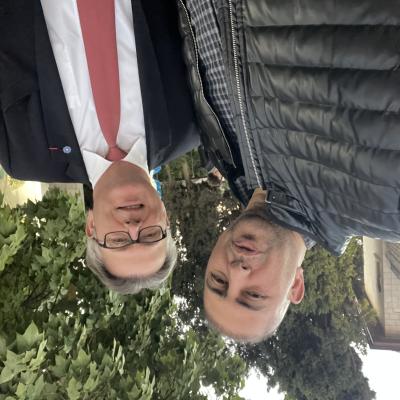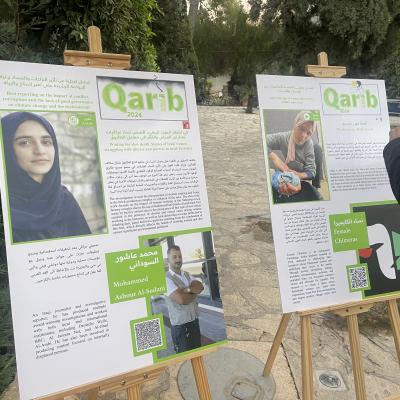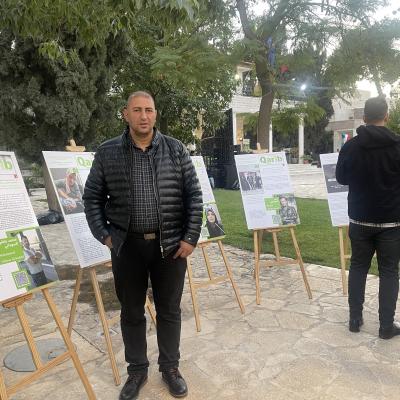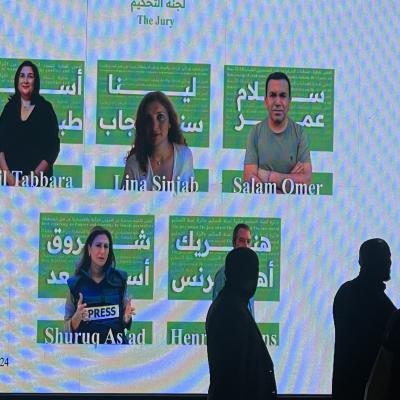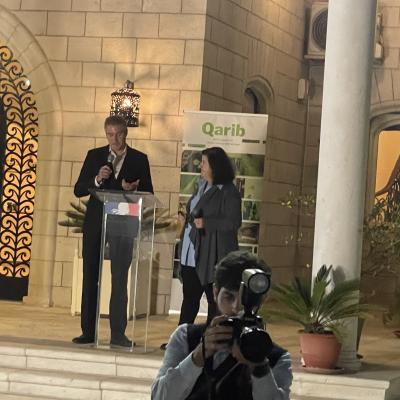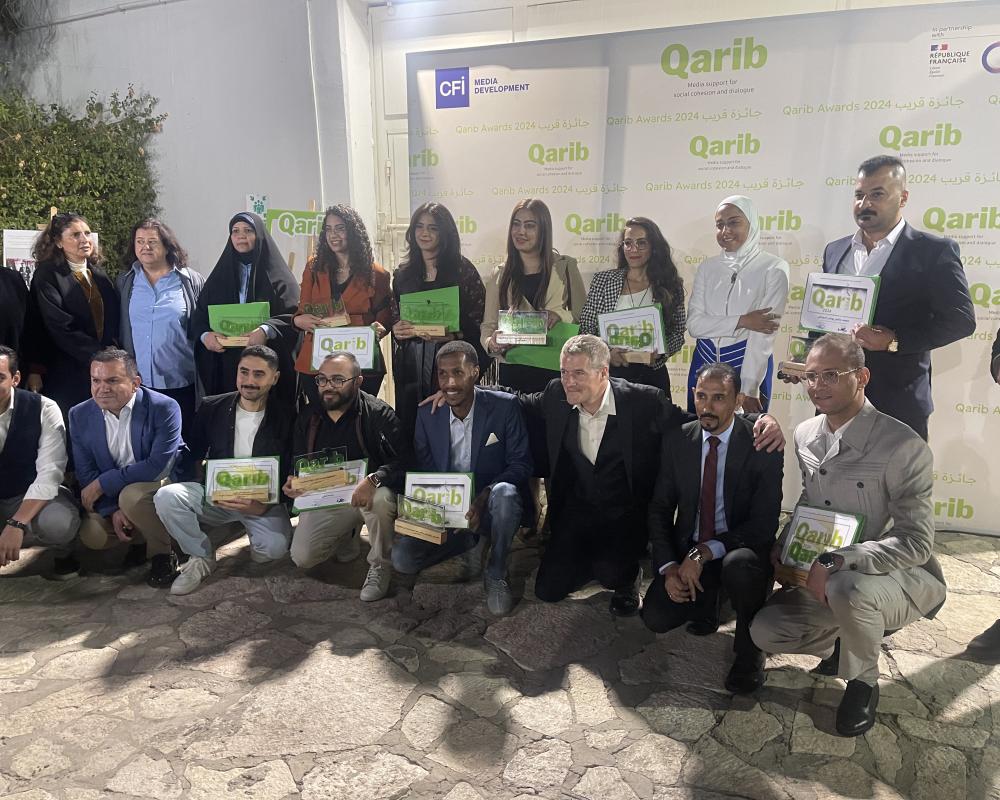
Amman / PNN /
The results of the "Qarib” Media Project" competition were announced in Amman, Jordan, highlighting efforts to strengthen independent media and promote freedom of expression in four Arab countries: Palestine, Jordan, Iraq, and Lebanon. The initiative aims to foster constructive journalism that empowers communities in these countries.
Ahrens: The Qarib Award Supports Independent Journalists
The award ceremony began with a welcoming speech by Henrik Ahrens, Director of the Qarib Media Project, who introduced the initiative and its objectives.
Ahrens explained that the annual Qarib Award serves as a motivational tool for approximately 600 journalists working with 40 media outlets involved in the project over the past three years. The initiative's focus is to strengthen independent journalism that serves as the voice of the people, reflecting their concerns without partisan or government bias.
Abdel Samad: Wars Have Influenced This Year’s Entries
Journalist Nada Abdel Samad, a production supervisor and coordinator for the Qarib Media Project across the four participating countries, noted that this year's competition results were announced under unprecedented circumstances due to ongoing conflicts in Palestine and Lebanon, as well as regional tensions.
She highlighted how this year’s stories often centred on the wars, their impact on civilians, and the resilience of communities in the face of such challenges.
Abdel Samad revealed that over 100 journalists submitted entries for the award, emphasizing the high quality of submissions. Many entries addressed the consequences of wars on women and children, alongside other pressing topics such as daily life challenges, corruption, and governance—issues critical to the communities in the participating countries.
Thirteen Journalists Honoured for Outstanding Achievements
Abdel Samad announced that thirteen participants were awarded prizes and extended congratulations to the winners for their accomplishments.
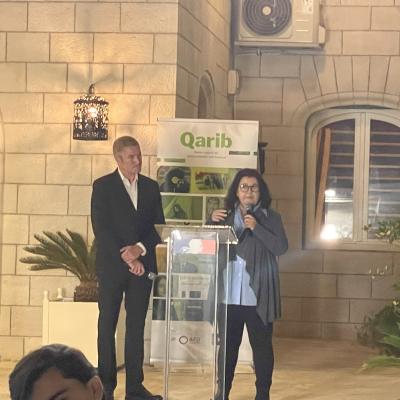
She also expressed gratitude to all members of the judging panel for their efforts.
French Ambassador: We Condemn the Killing of Journalists and Will Continue Supporting Them
French Ambassador to Jordan, Alexis Le Cour Grandmaison, emphasized the significance of the Qarib Media Project, describing it as a regional initiative launched in 2021 with the support of the French Development Agency (AFD) and implemented by the French Media Development Agency (CFI).
The project aims to strengthen independent media and professional journalists in four countries, ensuring that credible and verified information becomes more accessible amidst the ongoing technological revolution.
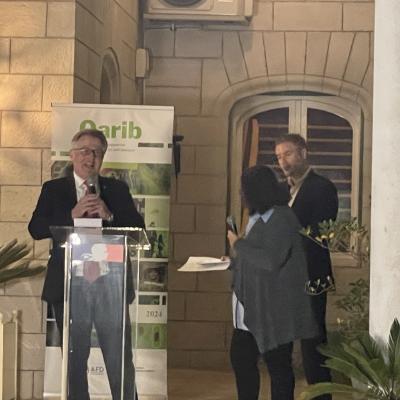
The ambassador condemned the killing of journalists in the region, particularly in Palestine and Lebanon, noting that dozens have lost their lives due to conflicts. He stated that for France, such acts are unacceptable, reaffirming the country's commitment to press freedom.
He also highlighted the enduring legacy of Palestinian journalist Shireen Abu Akleh, whose memory, he said, remains alive in the hearts of freedom advocates worldwide.
Middle East: The Most Dangerous Region for Journalists
Ambassador Le Cour Grandmaison stressed that Reporters Without Borders has identified the Middle East, particularly Palestine and Lebanon, as the most dangerous region for journalists.
He underscored the need to support professional journalists to ensure they can continue their work, stating that journalists symbolize hope. "This ceremony, held at the French Embassy, exemplifies France's unwavering support for journalists, press freedom, and its rejection of violence against them," he said.
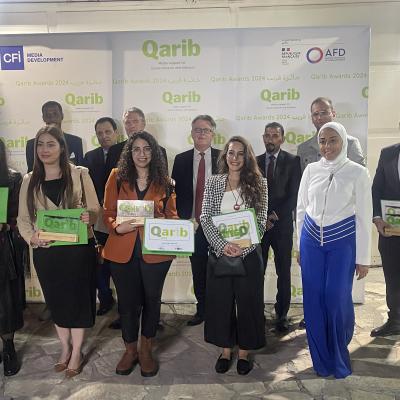
Award Winners: Victory for the Stories Amplifying People's Voices
Award winners, including participants from Palestine, expressed their joy not only at receiving recognition but also at being part of a regional Arab media initiative that enables them to produce stories reflecting the lives of citizens enduring wars and various violations in their countries.
Tala Halawa, Director of the Women of the Chimera platform and one of the winners, shared her pride in winning with a story about a 15-year-old girl forced to work to support her surviving family members. "This story highlights the devastating impact of the genocide in Gaza on children," Halawa said.
She emphasized that the real achievement lies in shedding light on the suffering of Palestinian children under occupation.
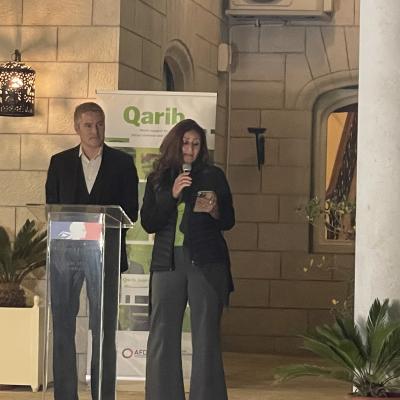
Halawa added that her platform is dedicated to empowering Palestinian women journalists and enhancing their role in the media and society. She thanked the Qarib project and the judging panel for their efforts, noting that the initiative has provided her with tools for growth, support, and development.
Al-Asaad: The Competition Showcased the Talents of Young Journalists
The competition's judging panel, composed of media professionals and journalists, reviewed more than 100 submissions. Of these, 33 were shortlisted, and 13 winners were ultimately selected across various categories.
Shuruq Al-Asaad, a member of the judging panel and the administrative council of the Palestinian Journalists' Syndicate, explained that all entries carried professional, humanitarian, and national messages. She praised the winning submissions for their high standards in editing, production, research, and sourcing.
Al-Asaad noted that whether in written reports, televised or visual stories, or investigative pieces, the competition revealed the exceptional capabilities of young journalists.
She emphasized the importance of initiatives like the Qarib Project and its awards in supporting the next generation of media professionals.
